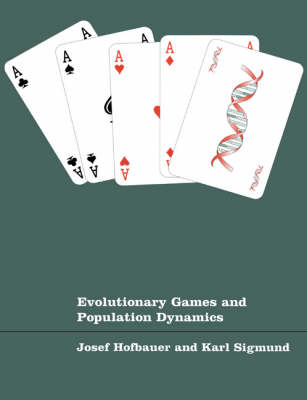London Mathematical Society Student Texts
1 primary work • 2 total works
Book 7
The Theory of Evolution and Dynamical Systems
by Josef Hofbauer and Karl Sigmund
Published 5 November 2015
This textbook is an introduction to dynamical systems and its applications to evolutionary game theory, mathematical ecology, and population genetics. This first English edition is a translation from the authors' successful German edition which has already made an enormous impact on the teaching and study of mathematical biology. The book's main theme is to discuss the solution of differential equations that arise from examples in evolutionary biology. Topics covered include the Hardy-Weinberg law, the Lotka-Volterra equations for ecological models, genetic evolution, aspects of sociobiology, and mutation and recombination. There are numerous examples and exercises throughout and the reader is led up to some of the most recent developments in the field. Thus the book will make an ideal introduction to the subject for graduate students in mathematics and biology coming to the subject for the first time. Research workers in evolutionary theory will also find much of interest here in the application of powerful mathematical techniques to the subject.
Evolutionary Games and Population Dynamics
by Josef Hofbauer and Karl Sigmund
Published 20 October 1988
Every form of behaviour is shaped by trial and error. Such stepwise adaptation can occur through individual learning or through natural selection, the basis of evolution. Since the work of Maynard Smith and others, it has been realised how game theory can model this process. Evolutionary game theory replaces the static solutions of classical game theory by a dynamical approach centred not on the concept of rational players but on the population dynamics of behavioural programmes. In this book the authors investigate the nonlinear dynamics of the self-regulation of social and economic behaviour, and of the closely related interactions between species in ecological communities. Replicator equations describe how successful strategies spread and thereby create new conditions which can alter the basis of their success, i.e. to enable us to understand the strategic and genetic foundations of the endless chronicle of invasions and extinctions which punctuate evolution. In short, evolutionary game theory describes when to escalate a conflict, how to elicit cooperation, why to expect a balance of the sexes, and how to understand natural selection in mathematical terms.

